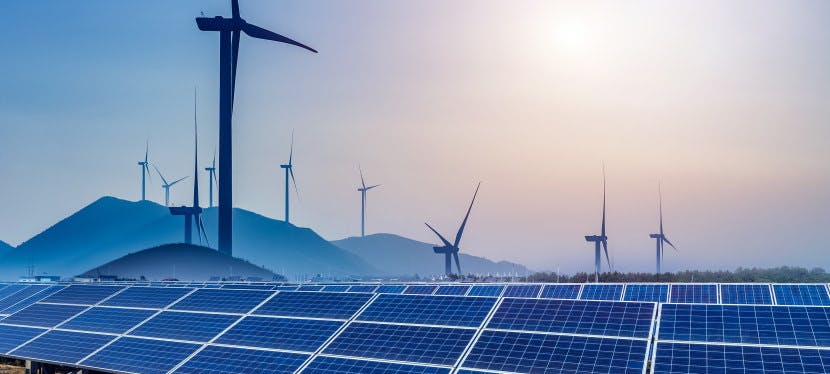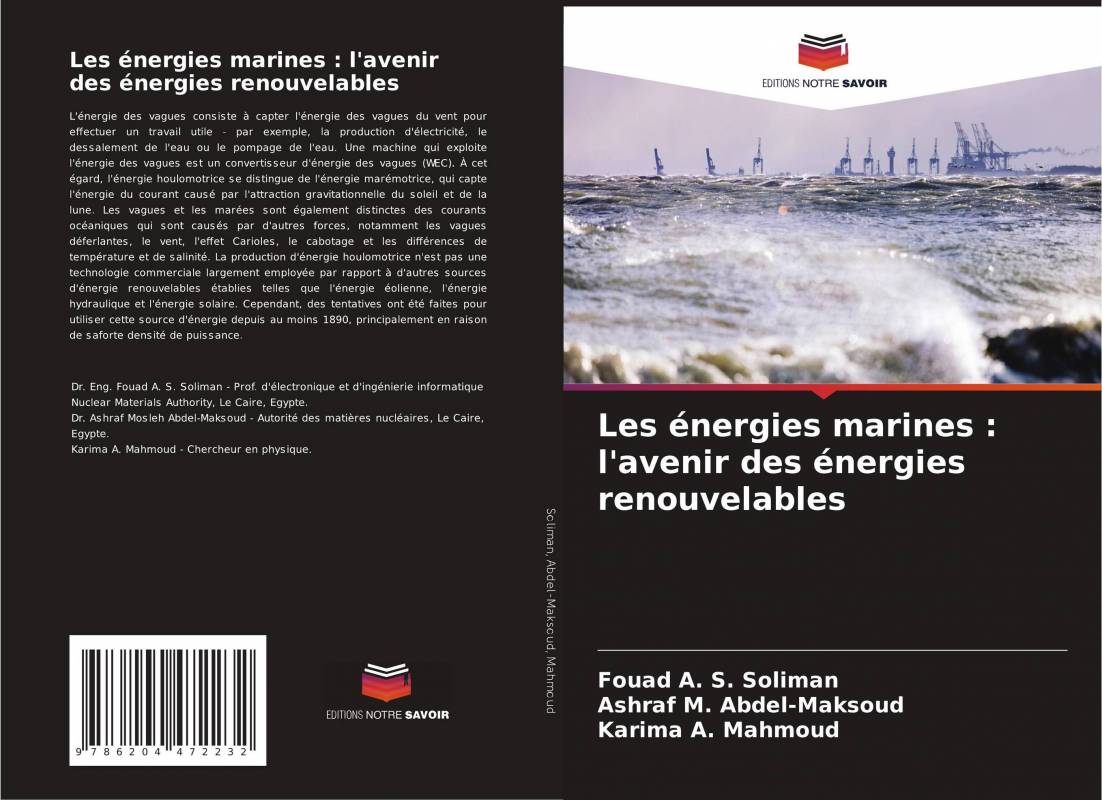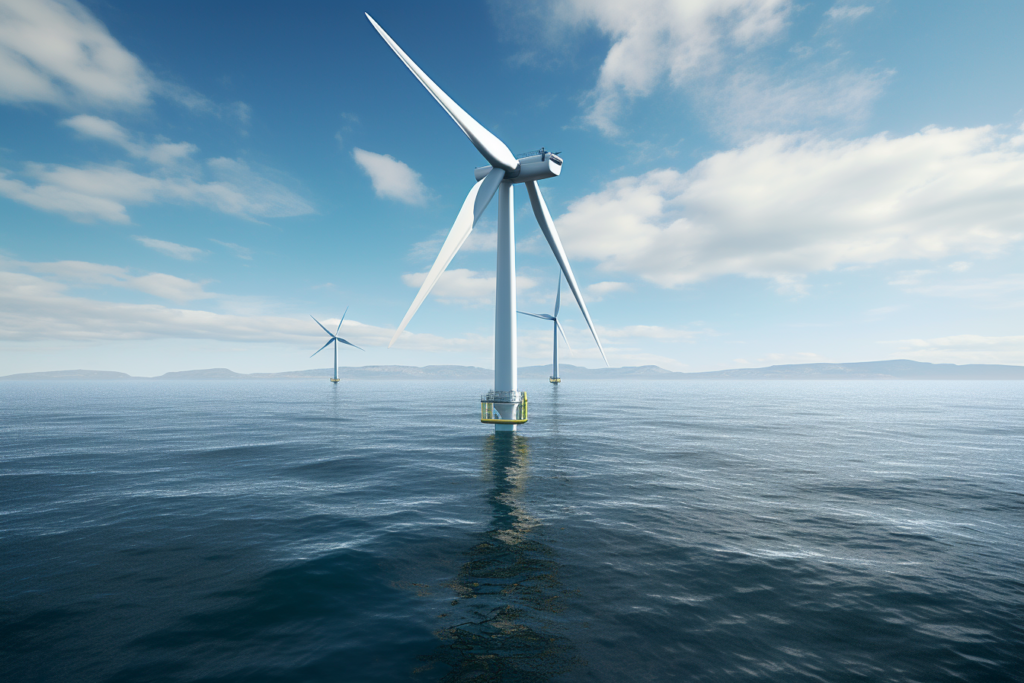Marine renewable energy represents a fascinating promise for the energy future of our planet. With growing concerns about climate change and the depletion of traditional resources, this still underexploited energy source offers innovative solutions to meet the growing demand for electricity while respecting the environment. Whether through wave energy, tides or even ocean thermal energy, these emerging technologies could transform our energy systems, create new economic opportunities and contribute to the preservation of marine ecosystems. In this context, it is crucial to understand how marine renewable energy can not only diversify our energy mix, but also promote a transition towards a sustainable and responsible future.
| Axis | Impact |
| Reduction of CO2 emissions | Helps mitigate climate change. |
| Energy sovereignty | Reduced dependence on imported fossil fuels. |
| Job creation | Stimulates sustainable jobs in green technologies. |
| Technological innovation | Pushes to develop new marine technologies. |
| Local economic development | Promotes the economies of coastal regions. |
| Protection of biodiversity | Allows the creation of marine habitats while producing energy. |
| Integration into the energy mix | Complements other renewable energy sources. |
- Reduction of carbon emissions
- Use of inexhaustible natural resources
- Stimulating technological innovation
- Job creation in green sectors
- Diversification of the energy mix
- Improving energy security
- Sustainable infrastructure development
- Integration into smart electricity networks
Table of Contents
ToggleThe impact of marine energy on the energy transition

Marine renewable technologies represent a major opportunity in the quest for new sources of energy. Their potential to transform our energy future is immense.
One of the most promising is energy hydraulic. Using the power of tides, waves or ocean currents to produce electricity, it provides a reliable and predictable source of energy. Unlike other forms of renewable energy, such as wind and solar, marine energy can produce electricity continuously, even when the wind isn’t blowing or the sun isn’t shining.
In Europe, pilot projects have already shown promising results. For example, the Renewable Marine Energy Standard (REM) presents an encouraging initial assessment of the deployment of these technologies. According to a recent report, marine renewable energy installations in Europe have significantly reduced carbon emissions.
The potential of offshore wind power should not be overlooked. With turbines installed on offshore platforms, this energy source can generate large quantities of electricity, thereby reducing our dependence on fossil fuels. According to EDF, the development of offshore wind is a priority, with numerous projects underway which aim to increase the installed capacity of this technology in the coming years. Offshore wind stands out for its ability to capture more regular and stronger winds at sea, making it an efficient solution for the massive production of clean energy. Learning more about the plans and ambitions for offshore wind is essential to understanding its crucial role in the energy transition: discover EDF initiatives.
Marine renewable technologies not only provide ecological benefits, but they can also boost the local economy. By investing in the infrastructure needed to capture marine energy, new economic opportunities can emerge, creating jobs and promoting the development of coastal communities.
In conclusion, marine renewable energy has immense potential to transform our energy future. Whether through hydraulics, offshore wind or other innovative technologies, the sustainable exploitation of marine resources is emerging as a key solution to meeting global energy challenges.
Emerging technologies
Marine renewable energy has immense potential to transform our energy future. Among the sources of marine energy,offshore wind stands out. These wind turbines placed at sea exploit more regular and powerful winds than those present on land. In Europe, the deployment of offshore wind power is already underway, despite some challenges linked to territorial appropriation (source).
Wave and tidal energy is another promising technology. The facilities oftidal turbines, for example, transform the kinetic energy of ocean currents into electricity. These emerging technologies can operate continuously, providing stable and predictable energy production.
The preservation of marine ecosystems is crucial when we talk about renewable marine energy. Any exploitation must absolutely respect biodiversity and minimize environmental impact. Regulations and technological innovations play a crucial role in ensuring these criteria.
In Norway, controversy exists around seabed mining, where environmental issues are even more pressing (source).
THE emerging technologies in the field of marine renewable energy are varied:
- Offshore wind
- Hydrokinetics
- Wave energy
- Tidal energy
These technologies are paving the way for a cleaner energy future. The development and integration of renewable marine solutions can play a decisive role in the fight against climate change and saving our planet.
Integration into the energy mix
Marine renewable energy plays a crucial role in our energy future. It exploits the natural strengths of oceans and seas to produce electricity, without emitting greenhouse gases. By adopting technologies such as tidal turbines, we can reduce our dependence on fossil fuels and diversify our energy mix.
The impact of marine energy on the energy transition is significant. On the one hand, it offers a constant and predictable source of energy thanks to tides and ocean currents. On the other hand, it contributes to energy security by exploiting local and abundant resources. This helps reduce fossil fuel imports and promotes energy independence in coastal regions.
The integration of marine energy into the energy mix requires improvement of existing infrastructure and strengthened collaboration between the public and private sectors. Pilot projects and government initiatives are essential to test, validate and deploy these technologies at scale. Furthermore, it is crucial to minimize environmental impacts by choosing appropriate sites and respecting marine ecosystems.
Here are some major benefits of marine renewable energy:
- Low environmental impact compared to fossil fuels
- Significant energy production potential
- Reduction of CO emissions2
- Creation of local jobs in coastal regions
However, it is important to be aware of the boundaries and challenges linked to this energy source. Initial development and maintenance costs are still high, and impacts on marine wildlife must be carefully studied. By overcoming these obstacles, marine renewable energy can play a key role in a more sustainable and environmentally friendly energy future.

A: Marine renewable energy refers to energy sources from the sea, such as energy from waves, tides and ocean currents.
A: It can reduce our dependence on fossil fuels and reduce greenhouse gas emissions, thereby contributing to a more sustainable energy future.
A: Benefits include an inexhaustible energy source, local electricity generation and reduced environmental impact compared to traditional energy sources.
A: Challenges include high initial investment costs, technology still under development, and potential impacts on the marine ecosystem.
A: Technologies include underwater turbines, wave energy buoys and tidal structures.
A: France is investing in the development of marine energy projects, particularly through offshore wind farms and research into tidal energy.
A: Although installation costs are high, marine energy is becoming increasingly competitive thanks to technological advances and greater energy efficiency.









